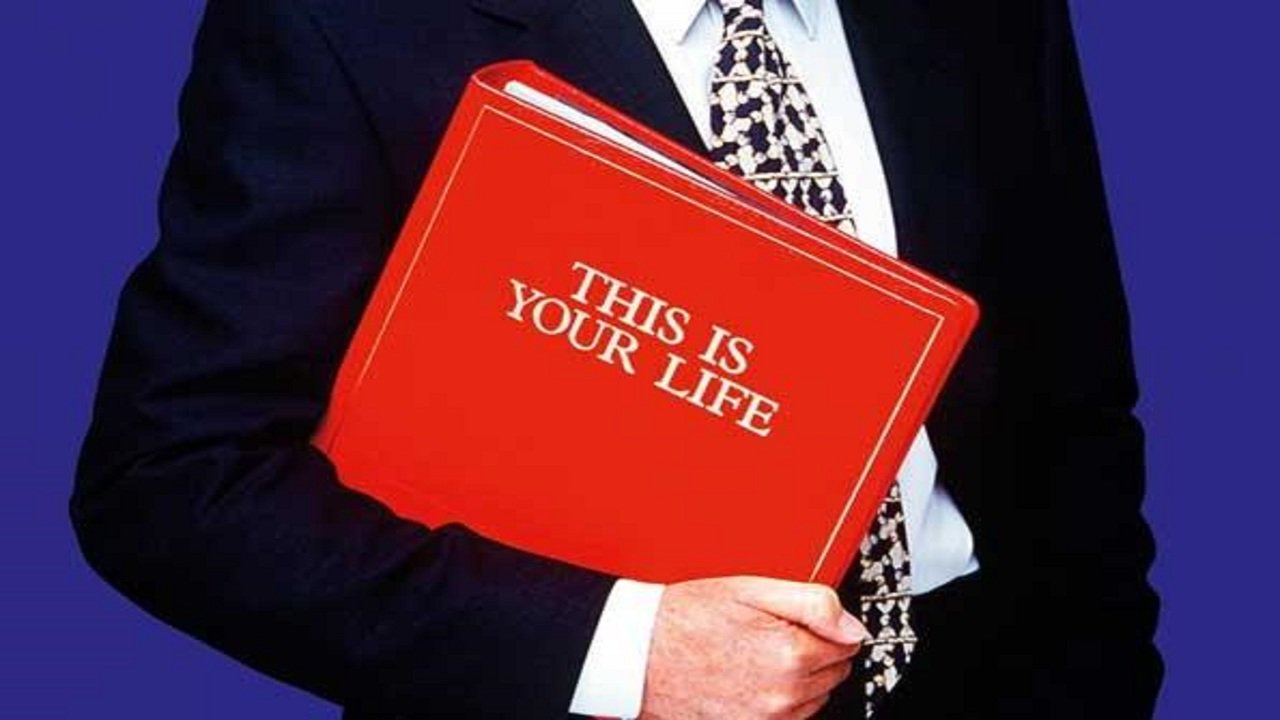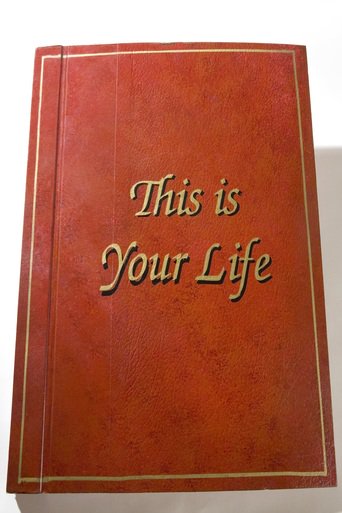screenman
'This Is Your Life' began in 1952, but the second incarnation in 1955 featuring Eamon Andrews as host is the earliest I remember.Andrews had a curious Aglicised Irish accent. His pronunciation sometimes sounded slightly drunken. The phrase 'this is' sounded normal enough, but it then slurred into 'yur-lyfe. I'm surprised he wasn't voice-coached in those days. The BBC were so 'proper' in every other way.During the late 50's and early 60's, strangely, he became the ubiquitous face of BBC presentation. 'This Is Your Life' was one of their flagship programmes, appearing on prime-time Sunday evenings, when TV audiences were supposed to be at their most numerous. He also chaired 'What's My Line', a celebrity quiz show about employment. It was much less popular and faded in the 1960's. He was also frontman on BBC's flagship kids' show 'Crackerjack!', where he was as square as a shoebox. There were other outings too.'Life' struck me both as child and adult, as a piece of the most outrageous impertinence. Here were these people, fishing and snooping about behind someone's back, unearthing all manner of personal and private material, contacting relatives, friends and workmates alike, and then trapping the subject without the least warning by some shallow ruse, and compelling them to endure its public exposure.Being usually famous, especially in the media, they had little option to put on a brave face. Temper tantrums were simply not the done thing in 50's-60's Britain. Especially on stiff-necked Auntie Beeb. Yet it was patently obvious from their expressions that many found the experience uncomfortable if not downright harrowing. With very good reason. Humans being inherently nosey and not particularly nice, the programme prospered and ran for many decades. At the time of writing, it is no longer available, but I wouldn't write its epitaph just yet.Occasionally it featured someone in whom I had an interest, and if I was indoors I might have watched it. But otherwise I found the whole format a stinker. If I'd been famous and found myself cornered by Andrews and his red book and creaking camaraderie, I'd have embellished that fame by smacking him in the gob and walking off. It's a pity no-one ever did. Though I suspect that as part of their research, they made sure to only ensnare 'tame' celebrities.
ShadeGrenade
Each Wednesday evening, at 7.00 P.M., Mrs.Elsie Haddock, aged 72, of Runcorn, Cheshire, would be wearing her best dress and jewellery. She wanted to look presentable in case a certain Irishman came calling, a gleam in his eye and a big red book under his arm. "You thought you were going to watch 'This Is Your Life' tonight. But no, because Mrs.Elsie Haddock, tonight 'This Is Your Life'!".I did not make that up. It was in 'The Sunday People' newspaper sometime around 1972. Mrs.Haddock was one of millions who thought they were in with a fleeting chance of stardom, thanks to the publicity department at Thames T.V. Anticipating the National Lottery's slogan, it went as follows: "Who knows, it might be you!".Of course there was never any danger of someone like Mrs.Haddock actually getting on 'Life', for that you needed an Equity card. Occasionally lifeboatmen, charity workers and war heroes such as Pat Reid and Douglas Bader featured, but by and large the victims were actors, singers, directors etc. Quite a lot of the subjects were coincidentally starring in series made by Thames, such as Jack Smethurst ( 'Love Thy Neighbour' ), Simon Rouse ( 'The Bill' ), and George Cole ( 'Minder' ).The shows followed the same pattern; Eamonn Andrews ( sometimes known as 'Seamus Android' ) would ambush his victim at a press conference or book signing, cackling maniacally at their confusion, before whisking him/her off to a studio where he would tell his/her life story, and guests came on and told amusing anecdotes. "That's right, Eamonn. I remember it as though it was yesterday...". Many guests became regulars, provoking the following sarcastic quote from Jasper Carrott: "Is there anyone in the Western Hemisphere who does not know Lionel Blair?".One week the victim was 'Carry On' star Jack Douglas, and his ex-comedy partner Joe Baker gave Eamonn a fright by telling a different anecdote to the one planned, causing him to sweat even harder than usual. One of snooker superstar Alex Higgins' relatives began a recollection about his childhood in Ireland, got nervous about being on television and dried up, leaving 'Hurricane' to complete the tale.One or two people stubbornly refused to co-operate, most notably footballer Danny Blanchflower. Jack Warner, star of 'Dixon Of Dock Green', said he never ever wanted to go on it, stating it had all the entertainment value of a traffic accident. 'Coronation Steet' actor Roy Barraclough looked as though he hated every moment of his time on 'Life', and with good reason. He had had to cut short a holiday abroad to fly back to England, having been told that rushes of the soap had been spoilt, and needed re-taping. It was all a ruse. His smiles looked as unconvincing as the beer he pulled in the 'Rovers Return'. When 'Avengers' star Patrick Macnee was the subject, his friend Ian Hendry turned up smashed and gave an incoherent speech that had to be cut from the transmitted show.When it went well, it could be unbearably sentimental, thus making it a target for spoofs by comedians such as Mike Yarwood and Benny Hill. But viewers loved it. Eamonn himself was the target one night, with magician David Nixon standing in for him as host.Actor Richard Beckinsale got the red book in 1977, provoking a complaint from a 'Sun' reader that he was too young to go on the show, and that he had his whole life ahead of him. As we know now, that life tragically ended three years later.I did not see the 1992 edition that featured Gary Glitter, but I bet it makes uncomfortable viewing today ( it probably did then ).After Eamonn's death in 1988, Michael Aspel took over, and the show was later dropped by Thames, eventually resurfacing on B.B.C.-1, where it lasted until 2003.As I write this, rumours persist about a possible return for 'Life'. I'm not surprised because although it drove me up the wall for much of the time ( oh no! Bonnie Langford again! ) it remains a good, solid television format. People love showbiz glamour.If it ever returns, I shall put on my best suit and gold cuff-links on Wednesday nights just in case the man with the big red book comes knocking. You never know...

